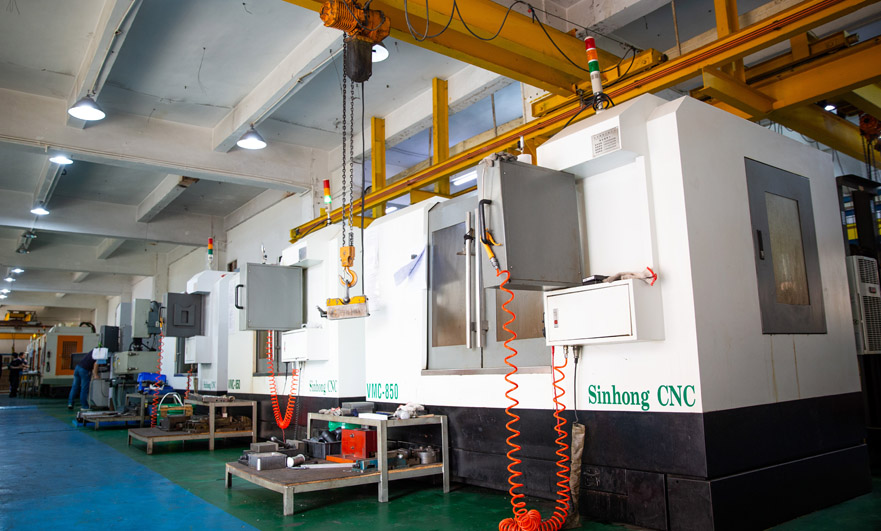For people who are new to CNC or have never been in contact with CNC, what is a Small batch Precision CNC Machining Milling parts Services is a vague concept.
After the product design is completed, it is generally not perfect, or even unusable. Once the product is directly produced, it is completely scrapped, which greatly wastes manpower, material resources and time; while the prototype machine generally has a small number of samples, a short production cycle, and less manpower and material resources. It will quickly discover the shortcomings of product design and make improvements, and provide a sufficient basis for product design and Small batch Precision CNC Machining production. Let’s take a look at CNCMF below.
What is a Small batch Precision CNC Machining Milling parts?
“Prototype” is an industry term, and the professional term is: “samples, verification parts, prototypes, scale models, etc.!” In layman’s terms, a product is a Small batch Precision CNC Machining Milling parts amount of verification samples manufactured before finalization.
For products that require mold production, prototypes are one or more functional models made according to the appearance or structure of the product to check the rationality of the appearance or structure.
10 common materials for Small batch Precision CNC Machining Milling parts
1. ABS:
The performance is basically the same as that of injection molding, so it is the most widely used in the prototype industry;
2. PC:
can be used to manufacture Small batch Precision CNC Machining Milling parts that need to maintain high rigidity in high temperature environments. PC also has UL94-V0 fire rating;
3. PMMA:
Acrylic, or plexiglass. The welding strength is acceptable, but fragile and fragile are its weaknesses, so it is not suitable for use in fragile places such as hooks;
4. PP: translucent material, which can be applied to production requirements with strict impact resistance conditions, such as automotive supplies, half-folded packaging boxes, etc.
5. PA66+GF30:
Suitable for automobile parts components , mechanical CNC machining parts, etc. Used to protect mechanical parts that require high rigidity and dimensional stability. Red phosphorus flame retardant has long-term stability and excellent mechanical properties;
6. POM:
suitable for high-strength workpieces in the Small batch Precision CNC Machining Milling parts model, such as gears, shafts, brackets, etc.;
7. Teflon:
Teflon for short, can play a lubricating effect, and also become an ideal coating for easy cleaning of the inner layer of water pipes;
8. Aluminum alloy:
Aluminum alloy is the most widely used non-ferrous metal structure material in the Small batch Precision CNC Machining Milling parts model. It has been widely used in aviation, aerospace, automotive, medical and marine prototypes. Currently, aluminum alloy is the most widely used alloy in Small batch Precision CNC Machining Milling parts. The advantages are easy CNC machining and forming, good rigidity, and rich anode coloring;
9. Magnesium alloy:
light weight and good strength, it is the favorite material of consumers 3C. The disadvantage is that magnesium is a flammable metal, and environmental control during Small batch Precision CNC Machining Milling parts is very important. Model making is very dangerous. In the production process, there are many CNC machining procedures after die casting, which is a high-cost application material;
10. Brass:
Brass is an alloy composed of copper and zinc. Brass composed of copper and zinc is generally brass.
Brass has strong wear resistance. Brass is often used to replace stainless steel and other materials that are difficult to engrave and grind. After polishing and electroplating, the Small batch Precision CNC Machining Milling parts surface effect and feel are very close to stainless steel.

The cost of Small batch Precision CNC Machining Milling parts production:
1. Small batch Precision CNC Machining Milling parts consumption directly uses real materials such as ABS, PP, etc., and the material cost is lower.
2. Compared with processes that require high dismantling and programming, usually one equipment is equipped with 3-4 people, which will consume a lot of labor costs.
Advantages of Small batch Precision CNC Machining Milling:
1. Appearance and structure design inspection: Before new product development, a Small batch Precision CNC Machining Milling of samples will be tested to find out the shortcomings and improve the new product.
2. Production of structural Small batch Precision CNC Machining Milling: Structural prototypes are also called functional prototypes, which can be sold directly as products on the market.
3. Participate in the exhibition: When there is no product, you can display it with a Small batch Precision CNC Machining Milling model, do a good job of pre-publicity, and even get an CNC machining order.
Summarize
When the feasibility of the designed product needs to be verified, Small batch precision CNC machining milling parts manufacturing is selected. When verifying products, pay attention to the materials, costs and defects of the work to avoid greater losses after production.